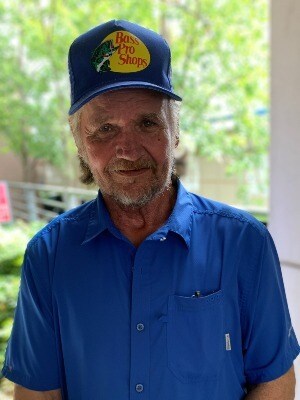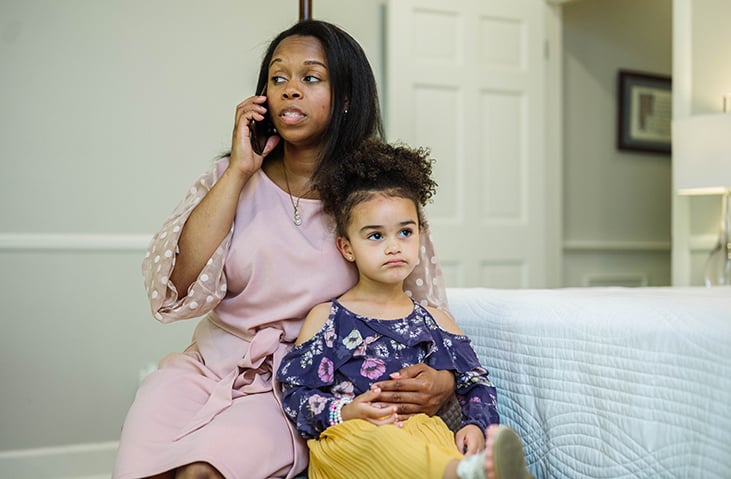

Jul 11 2022
Stopping Stroke: David White's Story


Summary
The TCAR procedure offers faster recovery, less pain and smaller scars than traditional carotid artery surgery.

Compared to most surgery, David White says his carotid artery procedure at North Mississippi Medical Center was a breeze. “I’ve had all kinds of surgery,” says the 66-year-old from Pheba. “This one was simple—nothing to it!”
Because he had blocked carotid arteries, cardiothoracic and vascular surgeons Drs. Vishal Sachdev and Joey Stinson performed a minimally-invasive procedure called TransCarotid Artery Revascularization (TCAR) on June 24 to reduce David’s risk for stroke. The procedure offers faster recovery, less pain and smaller scars than traditional carotid artery surgery. NMMC became the first hospital in north Mississippi to perform the procedure, which was reserved for patients considered at high risk for complications, in February 2020.
Blocked carotid arteries occur when plaque builds up in the main blood vessels to the brain. Eighty percent of strokes are “ischemic strokes,” where part of the circulation to the brain is cut off, usually by blockages in the carotid arteries.
While any repair of the carotid artery carries some risk of causing a stroke because of the repair itself, TCAR was designed to help minimize that risk. “This procedure is particularly suited for the large portion of patients we see who are at higher risk of complications from carotid surgery because of age, anatomy or other medical conditions,” Dr. Stinson says. “We perform the procedure through a much smaller incision at the neckline just above the clavicle instead of a longer incision on the neck.”
“TCAR is unique in that blood flow is temporarily reversed during the procedure so that any small bits of plaque that may break off are diverted away from the brain, preventing a stroke from happening,” Dr. Sachdev explains. Surgeons then filter the blood before returning it to a vein in the groin and implant a stent directly into the carotid artery to stabilize the plaque and prevent future strokes.
David was considered at high risk because of his health history. “I had a light heart attack six years ago, and I just got over surgery and treatment for lung cancer,” he says. “My back and neck have been messed up for years. I had my first back surgery in 1996 and have had three neck surgeries for disc issues. I need neck surgery again, but the doctor wanted me to have the carotid artery surgery done first.” Scar tissue from traditional carotid artery surgery would have complicated future surgeries on David’s neck.
After spending one night at NMMC, David was discharged home and bounced back quickly. A retired diesel mechanic, he enjoys raising cattle, putting up hay, piddling around his farm and playing with his grandchildren.
Now, high risk patients like David aren’t the only ones who can benefit from the less-invasive procedure. In June, the U.S. Food and Drug Administration approved TCAR for all eligible patients – anyone considered at standard surgical risk.
“Now a less invasive option can be used as a preventive procedure rather than waiting for a significant stroke,” Dr. Stinson says. “Hopefully, more people will consider this procedure without worrying about a more involved operation.”
“We have treated several patients over last two years with this procedure along with our usual open approach and have seen great success with both,” Dr. Sachdev adds.
For more information about TCAR or other services, click here or call Cardiothoracic and Vascular Surgery Clinic at (662) 377-7170 or 1-800-THE DESK (1-800-843-3375).
For an appointment with a heart or vascular specialist, call 1-800-THE DESK (1-800-843-3375).

Subscribe to Our Newsletter
Like this content and want to get more? Sign up for True North, the health and wellness newsletter from North Mississippi Health Services!

Subscribe to Our Newsletter
Like this content and want to get more? Sign up for True North, the health and wellness newsletter from North Mississippi Health Services!

Nurse Link®
Not sure if you need Urgent Care or the ER? Call 1-800-882-6274 anytime to speak directly to a registered nurse and get immediate answers. Using computerized medical protocols, nurses direct callers to the most appropriate treatment. Our nurses are available 24 hours per day, seven days per week.